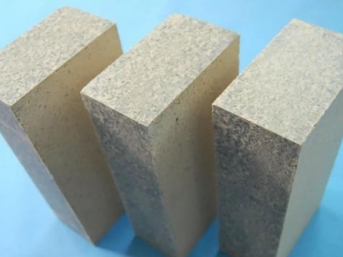- 18
- Mar
What is the melting point of refractory bricks?
What is the melting point of vatrostalne opeke?
Refractory bricks are heat-resistant materials, which are mostly used in high-temperature operations such as chimneys and kilns. However, refractory bricks also have melting points. The material types of refractory bricks are different. Choose the type of refractory bricks according to your own work use.
A refractory made of fire-resistant clay or other refractory materials. Mainly used for building smelting furnace, can withstand high temperature of 1,580℃-1,770℃;
clay bricks are weakly acidic refractory materials. Once the refractoriness of the clay bricks used in industrial furnaces is above 1600°C, the starting temperature of load softening is only 1250-1300°C. The clay bricks used by Yiran industrial furnaces are very rich in raw materials, the manufacturing technology is relatively simple, and the cost is relatively low. They are widely used in the construction of various Yiran heating furnaces and the flues, chimneys, and chimneys of Yiran heat treatment furnaces. Furnace body, waste heat equipment and combustion system burners, etc.

Magnesia brick is a refractory material with MgO content above 80-85% and periclase as the primary mineral deposit. The melting point of MgO is as high as 2800℃. The refractoriness of magnesia brick is above 2000℃, but its softening point under load is very low, as long as 1500-1550℃. This is because the surrounding periclase crystals are bonded by low-melting forsterite (CaO·MgO·SiO2) and glass, while periclase does not form a continuous crystalline network, the load deformation temperature is very low, and the beginning The temperature range from softening to 40% deformation is very small, as long as 30-50℃. The thermal stability of magnesia bricks is also poor, and it simply cracks during rapid cooling and heating, which is an important factor in the damage of magnesia bricks.
General corundum bricks are suitable for lining the fire surface of heavy oil gasification furnaces with a working pressure of 3MPa or less, an important part of the lining of salty wastewater incinerators, and radiant burner bricks that work at high temperatures. Generally, the use temperature of corundum bricks is below 1600-1670 degrees Celsius. Lightweight refractory clay bricks are used as kiln linings that are not corroded by high-temperature slag and corrosive gases. Depending on the capacity, the operating temperature is between 1150-1400 degrees Celsius
The above is a summary of the different melting points of refractory bricks according to different types. When choosing refractory bricks, you can also choose the right one according to the melting point.
